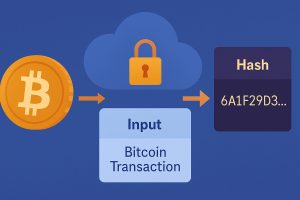Why understanding Bitcoin software options matters
Bitcoin is more than just a digital currency. It’s a network powered by different types of software, each with its own purpose. One of the most talked-about is Bitcoin Core—a reference point in the ecosystem. But it’s not the only option available. Understanding how it compares to other software helps users choose what suits their goals, whether they want to run a full node, manage their own wallet, or just explore.
Some people download Bitcoin software without realizing the differences. Others may choose something lighter because they want faster access or a simpler layout. But behind each piece of software are trade-offs that affect privacy, security, and participation in the Bitcoin network.
Learning the differences helps users make smarter decisions. Whether they plan to mine, trade, or just store a little bit of Bitcoin, choosing the right software makes a noticeable difference in both experience and responsibility.
What Bitcoin Core is and how it works
Bitcoin Core is the original software that runs the Bitcoin protocol. It was released by the pseudonymous creator Satoshi Nakamoto and has since been updated by a group of volunteer developers. It allows users to run a full Bitcoin node, meaning they download and validate the entire blockchain on their machine.
This software does more than just store Bitcoin. It checks every transaction and block for accuracy, ensuring the network runs smoothly. It connects to peers, relays transactions, and helps secure the blockchain by participating in its validation.
Because of its design, Bitcoin Core requires more computer resources than most wallets. It takes time to sync, and the blockchain it stores grows every day. But in exchange, users get unmatched transparency and control over their connection to the network.
Lightweight wallets and how they differ
Not everyone needs or wants to run a full node. Lightweight wallets like Electrum or BlueWallet are popular choices because they’re fast and easy to use. Instead of storing the full blockchain, they rely on servers to fetch data and send transactions.
This design has benefits for those with limited storage or lower-powered devices. These wallets can be set up quickly and don’t require hours of syncing. That makes them great for mobile users or people who just want to send and receive Bitcoin on the go.
However, there’s a trade-off. Lightweight wallets don’t verify every transaction themselves. They trust external servers to tell them what’s happening on the network. This may affect privacy and security, depending on how the wallet is configured and which server is used.
Custodial platforms and how they handle Bitcoin differently
Another category of Bitcoin software includes custodial platforms like centralized exchanges or hosted wallets. These tools let people hold Bitcoin without actually controlling it themselves. The user interface may look like a wallet, but in truth, the private keys are held by the platform.
These services offer convenience. There’s no need to worry about backups or syncing. Users can log in with a password and access their funds instantly. This setup is often preferred by beginners or those who use Bitcoin mainly for trading.
Still, this approach shifts control away from the user. If the platform goes offline or changes its rules, users may be left waiting or locked out. Unlike Bitcoin Core or a non-custodial wallet, custodial options depend on trust in a third party.
Node functions and why Bitcoin Core matters more to the network
Bitcoin Core is unique because it helps keep the Bitcoin network running. When someone runs it, they help validate blocks, propagate transactions, and enforce the rules of the protocol. This adds strength to the network and reduces reliance on centralized services.
Other Bitcoin software, especially wallets and apps, don’t usually provide these functions. They connect to full nodes to gather data or send transactions, but they don’t play an active role in validation. That’s why Bitcoin Core is often described as the backbone of the network.
More Bitcoin Core nodes mean a healthier, more decentralized system. It spreads the workload and reduces single points of failure. People who choose to run it aren’t just storing coins—they’re contributing directly to Bitcoin’s survival.
Trade-offs in performance and accessibility
Bitcoin Core gives a lot, but it also asks a lot. It takes up disk space, uses bandwidth, and can take days to fully sync the blockchain on a new machine. That’s a big ask for casual users or those with slow connections.
Other Bitcoin software, especially a mobile wallet or SPV client, are lightweight by design. They can be used instantly, don’t require much memory, and are designed for fast access. But that ease comes at the cost of full verification.
Each type of software serves a different need. Those who prioritize independence and privacy may lean toward Bitcoin Core. Those who want speed and simplicity may prefer lighter tools. The trade-off lies in how much responsibility the user is willing to take on.
Upgrades and development paths
Bitcoin Core is maintained by a global group of open-source developers. Changes go through careful review, and there’s a long discussion process before updates are accepted. This makes it stable, but slower to adopt new features compared to other Bitcoin apps.
Some wallets and platforms move quickly, adding new functions like lightning support, coin control, or custom fee settings. These tools can respond faster to user demand, offering extra features that Bitcoin Core might not have yet.
That said, Bitcoin Core aims for stability over speed. Since it forms the base of the Bitcoin network, any mistake could cause widespread issues. Developers take that responsibility seriously and avoid rushing into changes without full testing.
Wallet control and ownership of funds
Bitcoin Core gives users full control over their private keys. When someone runs a full node and manages their wallet on the same machine, they alone have access to their funds. This aligns with the phrase “not your keys, not your coins.”
Other software varies. Some wallets also offer full control but connect to remote nodes. Others, like custodial wallets, remove the user’s ability to manage keys entirely. This introduces convenience, but it also means someone else is in charge of the coins.
Ownership matters because it reflects both trust and responsibility. Bitcoin Core puts everything in the hands of the user. It doesn’t make backups or manage passwords. That’s up to the person running it—and that’s part of what makes it powerful.
Privacy differences between software types
Bitcoin Core provides better privacy by default. Since it downloads and verifies everything locally, it doesn’t need to ask outside servers about your wallet or transactions. This keeps data away from third parties who might track or monitor activity.
Lightweight wallets and custodial services often leak some information during use. They might share your IP address or reveal your wallet balance to servers. Some offer privacy features, but they still can’t match the self-contained nature of Bitcoin Core.
Privacy-conscious users often pair Bitcoin Core with other tools, like Tor or privacy wallets, to improve their setup. For many, the goal is simple: reduce exposure and avoid sharing data with unknown actors across the network.
Knowing what fits your needs
There’s no single right answer when choosing Bitcoin software. Some people value speed and ease of use, while others want control and independence. What matters is finding a tool that matches your goals and comfort level.
A trader using a small balance may be fine with a mobile app. A long-term holder might prefer a non-custodial desktop wallet. Someone passionate about Bitcoin’s future may decide to run Bitcoin Core to help support the network itself.
Each path offers a different experience. The best choice comes down to what you need from your wallet—and how much you want to rely on others.
















No Responses